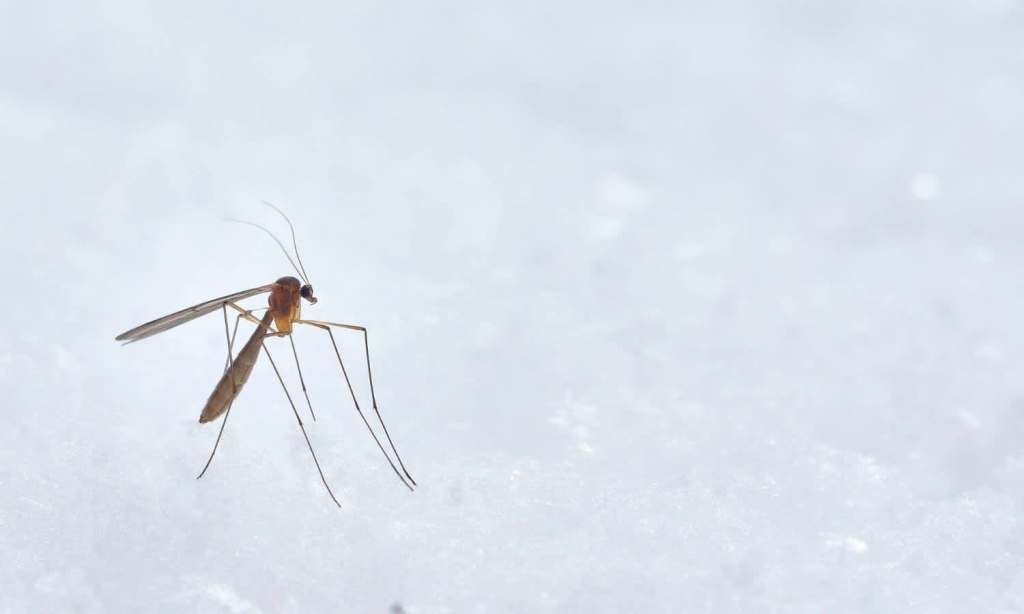If you read this headline and imagined something out of a sci-fi film, well, you’re imagining right.
This afternoon, six Florida Keys residents are going to set out aquamarine cardboard boxes filled with mosquito larva, pour water into the containers and watch as the mosquitoes turn into adults over the span of ten days.
Now the mosquitoes, they won’t be your ordinary mosquito. They’re genetically-modified organisms, known as OX5034 and made in a laboratory in London.
Their goal? To kill off as many bloodsucking mosquitoes as possible, also targeting potential deadly mosquito species such as the Aedes aegypti mosquito, which have been known to carry dengue fever, Zika virus, and yellow fever.
Oxitec, the British biotech firm behind this project, has been approved for a two-year Experimental Use Permit by the EPA (Environment Protection Authority), which will see them release over 1 billion genetically modified mosquitoes across 6,600 acres in Florida and Texas.
For this first project, they’re focusing on the lower Florida Keys, where they’ll release 144,000 non-biting male mosquitoes from six different locations, making a debut in genetically modified mosquitoes being let out into an open ecosystem in the US, having previously been successful in northeast Brazil and the Cayman Islands.
The reason that Florida was next on Oxitec’s list is because Florida mosquitoes are growing increasingly resistant to insecticide, with $14 million a year spent on attempting to get rid of as many as possible. Given that they’re known for carrying such deadly diseases, Florida’s resident mozzie Aedes aegypti does more harm than it does good.
Within the last 10 years, more than 7,300 dengue cases were reported in the US. In 2016, 29 people got sick with Zika through local mosquito-borne transmission. The CDC believes that exposure to the virus came from within a six-block radius, forcing Miami-Dade County to aerially spray the area with pesticide.
While these numbers aren’t huge, they have the ability to grow rapidly, especially when spread through such a common insect to the environment. This always has scope to expand, without any real way of tracking how many mosquitoes carry the viruses, or any solution for the problem but a bunch of chemicals being sprayed in the air.
This new project from Oxitec, although slightly spooky (when have you ever seen a genetically-modified animal in your natural environment?), is a pretty cool development, not only for America, but for viruses carried by animal species all over the world.
“The Aedes aegypti mosquito only makes up 4% of the mosquito population in the Keys but is responsible for almost mosquito-borne diseases transmitted to humans,” the Florida Keys Mosquito Control District wrote in a press release.
Because the female mosquitoes are the only ones that can bite and pass on disease, Oxitec’s male mosquitoes carry a “self-limiting” gene that is released when they mate with wild, potentially diseased females. This gene is then passed onto their offspring, causing female baby mozzies to die before they can reach adulthood and pass the disease onto humans.
“The female offspring of these encounters cannot survive, and the population of Aedes aegypti is subsequently controlled,” the mosquito control district wrote.
It’s a crazy world we live in. Although sometimes these new scientific projects can completely blow our minds and be difficult to comprehend them actually happening in reality, this particular project has worked in previous locations and has a good chance of making its way through many more countries.
According to Oxitec, the trial in Indaiatuba, a city in Brazil, “found that Oxitec’s mosquito suppressed disease-carrying Aedes aegypti by up to 95% in urban, dengue-prone environments after just 13 weeks of treatment, as compared to untreated control sites in the same city.”
Along with no being able to pass on disease, these mosquitoes are promised to have no bite, which honestly is music to our ears.
Read more stories from The Latch and subscribe to our email newsletter.







